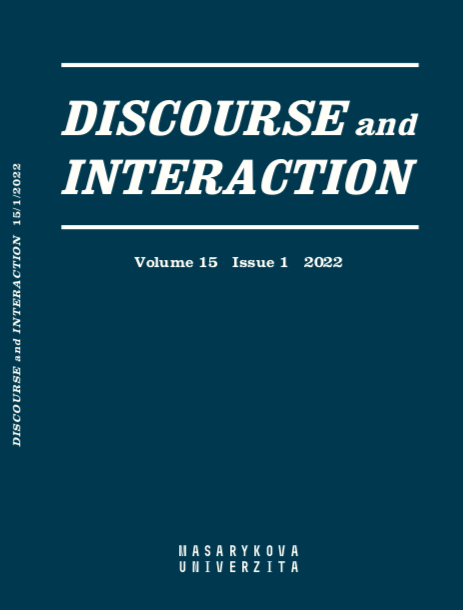Cross-textual reconceptualisation of the deictic space of “victory” in political discourse: Donald Trump versus Joseph Biden
Cross-textual reconceptualisation of the deictic space of “victory” in political discourse: Donald Trump versus Joseph Biden
Author(s): Amir H. Y. SalamaSubject(s): Language and Literature Studies, Theoretical Linguistics, Applied Linguistics, Syntax, Lexis, Pragmatics, Sociolinguistics, Descriptive linguistics, Philology, Stylistics
Published by: Masarykova univerzita nakladatelství
Keywords: cognitive linguistics; cross-textual reconceptualisation; Deictic Space Theory (DST); Donald Trump; Joseph Biden; political discourse analysis; victory
Summary/Abstract: The present study propounds the notion-complex of cross-textual reconceptualisation as a cognitive-linguistic output of applying Paul Chilton’s (2013, 2014, 2017) model of Deictic Space Theory (DST) to textual practices drawn from the broad domain of political discourse. The DST model has operated methodologically towards conducting a cognitively oriented political discourse analysis of the two victory speeches produced by Donald Trump and Joseph Biden during the 2020 election for US presidency. As a geometric model, DST has been applied to the two speeches in a way that demonstrated the deictic spatial construction of victory in relation to Trump and Biden as the now-here-real speakers on the three axes of discourse referents, time, and epistemic modality. The data analysis has revealed four significant instantiations of cross-textual reconceptualisation made by Biden of Trump’s deictic space of victory as a contested concept: (i) a “clear”and “convincing” victory, (ii) a peripersonal real victory, (iii) Trump and his voters,and (iv) a now shift from a past Democrat to a future President. All four instantiations have proved the hypothesis that the DST model, while revealing the deictic-spatial conceptualisations of “victory” constituted by each speaker in his speech, may further be extended to disentangle the interesting aspect of how one and the same concept could be reconceptualised across two textual practices produced by speakers with ideologically opposed perspectives.
Journal: Discourse and Interaction
- Issue Year: 15/2022
- Issue No: 1
- Page Range: 101-131
- Page Count: 31
- Language: English

